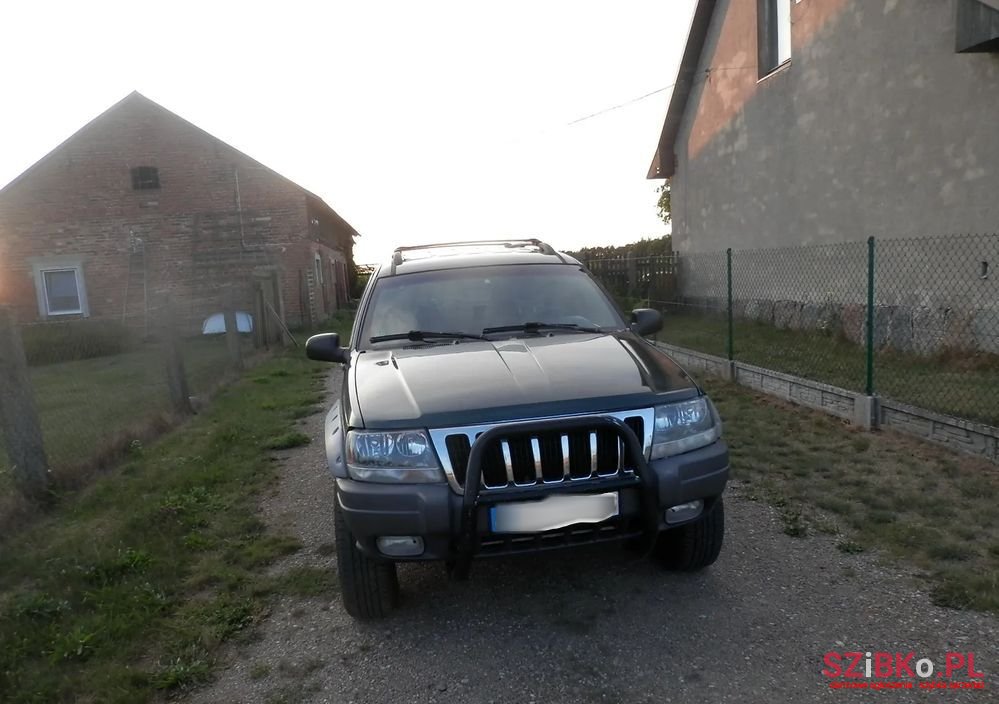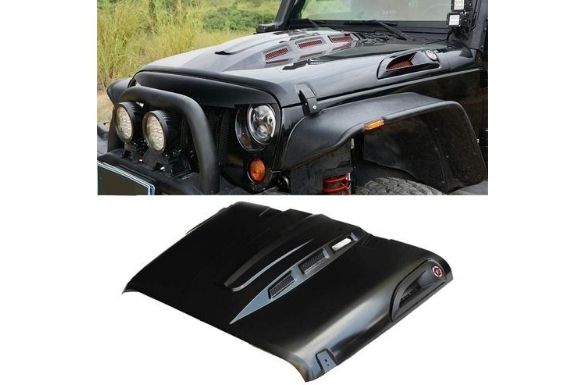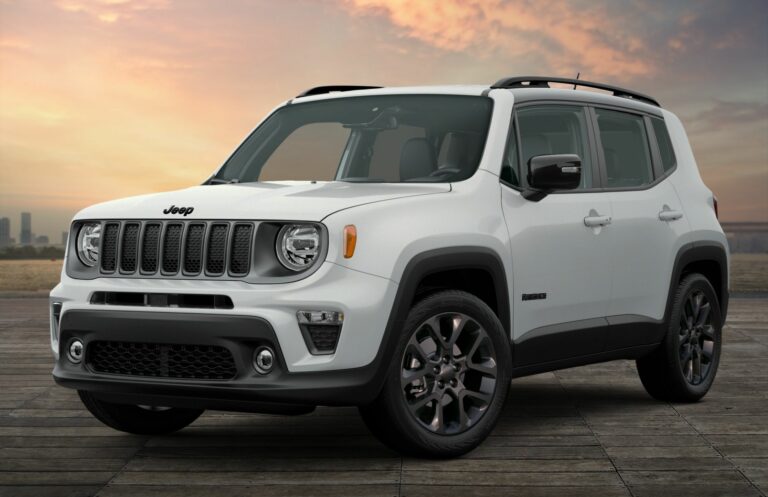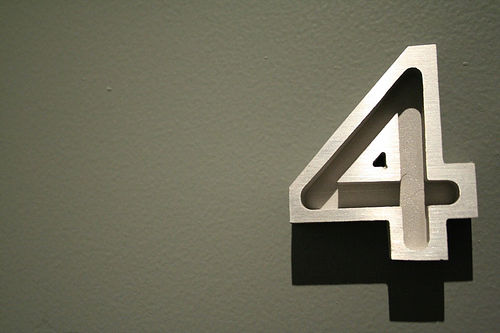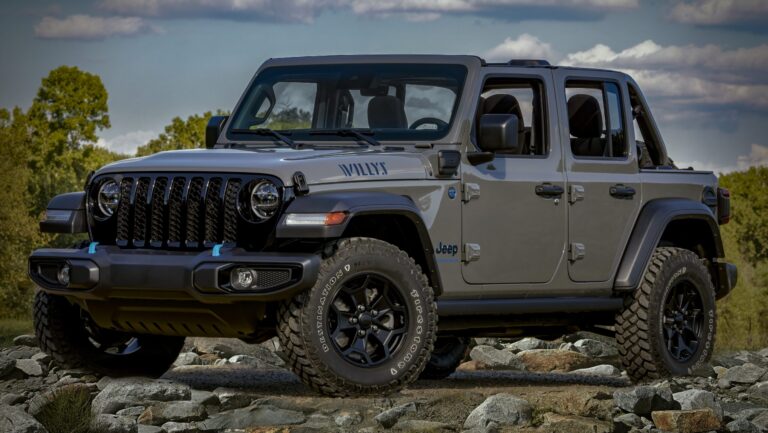2002 Jeep Grand Cherokee Rims For Sale: A Comprehensive Guide to Upgrading Your WJ
2002 Jeep Grand Cherokee Rims For Sale: A Comprehensive Guide to Upgrading Your WJ jeeps.truckstrend.com
The 2002 Jeep Grand Cherokee, part of the beloved WJ generation, remains a popular and capable SUV, known for its rugged durability, comfortable ride, and off-road prowess. Whether you’re looking to refresh its appearance, enhance its performance, or replace a damaged wheel, the market for "2002 Jeep Grand Cherokee Rims For Sale" offers a vast array of options. Rims, often interchangeably called wheels, are not just about aesthetics; they are crucial components that impact your vehicle’s handling, safety, and overall driving experience. This comprehensive guide will navigate you through everything you need to know about finding, selecting, and maintaining the perfect rims for your 2002 WJ Grand Cherokee.
Understanding Your 2002 Jeep Grand Cherokee Rims: OEM Specifications and Compatibility
2002 Jeep Grand Cherokee Rims For Sale: A Comprehensive Guide to Upgrading Your WJ
Before diving into the world of aftermarket upgrades or replacements, it’s essential to understand the original equipment manufacturer (OEM) specifications for your 2002 Jeep Grand Cherokee. These precise measurements ensure proper fitment, optimal performance, and safety.
- Bolt Pattern: The most critical specification is the bolt pattern, which for the 2002 WJ Grand Cherokee is 5x127mm (or 5×5 inches). This means there are five lug nut holes, spaced on a 127mm diameter circle. Any wheel you consider must match this pattern.
- Center Bore: The center bore is the hole in the middle of the wheel that fits over the vehicle’s hub. For the 2002 Grand Cherokee, the OEM center bore is 71.5mm. While aftermarket wheels often come with a larger center bore and require hub-centric rings to ensure a snug fit and prevent vibrations, it’s vital to be aware of this measurement.
- Offset (ET): Offset is the distance from the wheel’s mounting surface to the true centerline of the wheel. For the 2002 WJ, OEM offsets typically range from +30mm to +45mm. A positive offset means the mounting surface is towards the front (outboard) of the wheel’s centerline, pushing the wheel further into the fender. A negative offset pushes the wheel out. Choosing an incorrect offset can lead to rubbing issues, affect steering geometry, and potentially cause premature wear on suspension components.
- OEM Rim Sizes: From the factory, 2002 Grand Cherokees typically came with 16-inch, 17-inch, and sometimes 18-inch wheels, depending on the trim level (Laredo, Limited, Overland).
- 16×7 inches: Common on Laredo models.
- 17×7 inches or 17×7.5 inches: Often found on Limited and Overland models.
- 18×7 inches or 18×7.5 inches: Less common, but available on some higher trims.

Understanding these specifications is the foundation for a successful wheel purchase, ensuring compatibility and preventing costly mistakes.
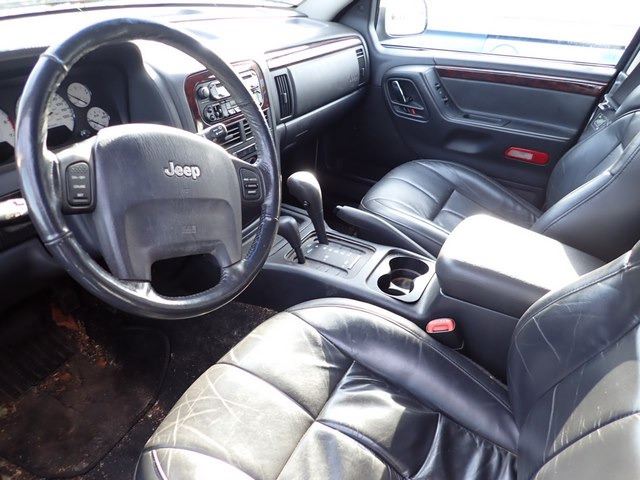
Why Buy Aftermarket or Replacement Rims for Your WJ Grand Cherokee?
There are numerous compelling reasons why owners seek out "2002 Jeep Grand Cherokee Rims For Sale":
- Aesthetic Upgrade and Personalization: The most common reason is to change the look of your Jeep. Aftermarket rims offer an incredible variety of styles, finishes (chrome, black, machined, polished), and designs that can dramatically alter your vehicle’s appearance, making it unique and reflecting your personal taste.
- Performance Enhancement: Lighter alloy wheels can reduce unsprung weight, leading to improved handling, better acceleration, and even marginal gains in fuel efficiency. Wider wheels can accommodate wider tires, providing a larger contact patch for enhanced grip, especially beneficial for off-roading or spirited driving.
- Off-Road Capability: For the adventurous WJ owner, specialized off-road rims, including those with beadlock capabilities (to secure the tire bead at very low pressures), offer increased durability and functionality for rugged terrains. Larger diameter rims can also facilitate the fitment of larger, more aggressive off-road tires, boosting ground clearance.
- Damage Replacement: Over two decades, original rims can suffer from curb rash, bends, cracks, or severe corrosion due to accidents, potholes, or environmental exposure. Replacing a damaged rim is crucial for safety and maintaining proper tire sealing and balance.
- Winter/Summer Tire Sets: Many owners opt for a separate set of rims for their winter tires. This saves money on tire mounting and dismounting twice a year and protects your primary rims from harsh winter conditions like salt and ice. Steel wheels are often preferred for winter sets due to their durability and lower cost.
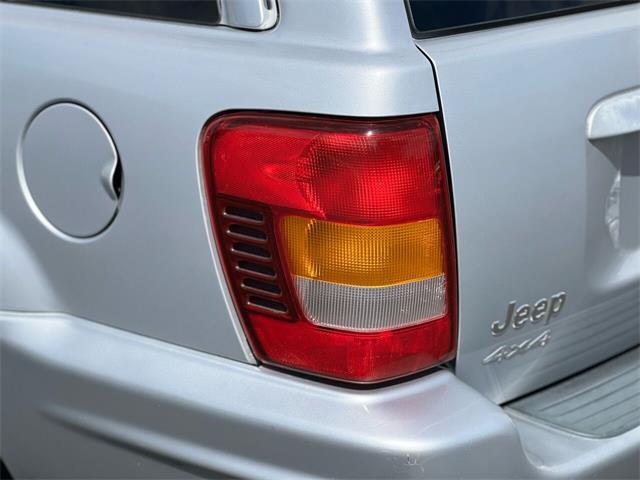
Types of Rims Available for the 2002 Jeep Grand Cherokee
When searching for "2002 Jeep Grand Cherokee Rims For Sale," you’ll encounter several categories:
- OEM (Original Equipment Manufacturer) Rims: These are direct replacements for the wheels that came with your Jeep.
- Pros: Perfect fit, maintains original look, guaranteed quality.
- Cons: Can be expensive new, limited style options, used ones may have age-related wear.
- Aftermarket Alloy Rims: The most popular choice for customization. Made from aluminum alloys, they are lighter than steel and come in an endless array of designs and finishes.
- Pros: Wide variety of styles, colors, and sizes; can be lighter for performance benefits.
- Cons: Can be more expensive than steel; some finishes may require more maintenance.
- Steel Rims: Durable, inexpensive, and often used for utility, off-roading, or winter sets.
- Pros: Very strong, affordable, good for rough use.
- Cons: Heavier than alloy, limited aesthetic appeal, more prone to rust if not properly coated.
- Specialty Rims:
- Beadlock Rims: Designed for extreme off-roading, these wheels mechanically clamp the tire bead to the rim, preventing the tire from coming off at very low air pressures. Not street legal in all areas.
- Chrome Rims: Offer a high-shine, reflective finish for a luxurious or show-vehicle look. They require specific care to prevent pitting and flaking.
Where to Find 2002 Jeep Grand Cherokee Rims For Sale
The market for used and new rims is diverse. Here are the best places to look:
- Online Marketplaces:
- eBay, Facebook Marketplace, Craigslist: Excellent for finding used OEM or aftermarket rims at competitive prices. You can often find sets or individual wheels.
- Pros: Wide selection, potential for great deals, direct communication with sellers.
- Cons: Buyer beware – verify condition thoroughly, potential for scams, shipping costs can be high for large items.
- eBay, Facebook Marketplace, Craigslist: Excellent for finding used OEM or aftermarket rims at competitive prices. You can often find sets or individual wheels.
- Dedicated Wheel & Tire Retailers (Online & Brick-and-Mortar):
- Tire Rack, Discount Tire, Summit Racing, Quadratec: These companies specialize in wheels and tires, offering a vast selection of new aftermarket options, often with fitment guarantees. Local tire shops also fall into this category.
- Pros: Expert advice, professional installation services, warranty, wide selection of new products.
- Cons: Generally higher prices than used options.
- Tire Rack, Discount Tire, Summit Racing, Quadratec: These companies specialize in wheels and tires, offering a vast selection of new aftermarket options, often with fitment guarantees. Local tire shops also fall into this category.
- Jeep Forums & Enthusiast Groups:
- Websites like "JeepForum.com" or dedicated WJ Facebook groups often have "for sale" sections where fellow enthusiasts sell their used parts.
- Pros: Knowledgeable sellers, often well-maintained parts, community support.
- Cons: Limited inventory, typically local pickup.
- Websites like "JeepForum.com" or dedicated WJ Facebook groups often have "for sale" sections where fellow enthusiasts sell their used parts.
- Salvage Yards/Junkyards:
- For cheap OEM replacements, a local salvage yard can be a goldmine.
- Pros: Very affordable, authentic OEM parts.
- Cons: Condition can vary widely, requires physical inspection and effort to remove.
- For cheap OEM replacements, a local salvage yard can be a goldmine.
- Dealerships:
- Jeep dealerships can order brand new OEM wheels, though this is often the most expensive option.
- Pros: Guaranteed OEM fit and quality.
- Cons: Highest price point.
- Jeep dealerships can order brand new OEM wheels, though this is often the most expensive option.
Key Considerations When Buying Rims
Making an informed decision requires careful consideration of several factors:
- Condition: When buying used rims, thoroughly inspect them for:
- Bends or Dents: Especially on the inner lip, which can cause vibrations and air leaks.
- Cracks: A major safety hazard; do not buy cracked rims.
- Curb Rash: Scratches on the outer edge, common but can be unsightly.
- Corrosion/Peeling: Common on older clear-coated or chrome wheels.
- Repairs: Ask if the rim has ever been welded or straightened.
- Budget: Set a realistic budget. Prices can range from under $50 per used steel rim to several hundred dollars per new premium alloy wheel.
- Material and Finish: Consider how the material (alloy vs. steel) and finish (painted, machined, chrome) will stand up to your driving conditions and how much maintenance you’re willing to do.
- Fitment: Re-verify the bolt pattern, center bore, and offset. Use online wheel configurators that allow you to input your vehicle year, make, and model to ensure compatibility.
- Tire Compatibility: If you’re keeping your existing tires, ensure they are compatible with the new rim width and diameter. If buying new tires, consider the desired tire size in conjunction with your chosen rims.
- Application: Will your Jeep be a daily driver, an off-road beast, or a show vehicle? Your intended use should guide your rim choice.
- TPMS (Tire Pressure Monitoring System): The 2002 Grand Cherokee typically did not come with wheel-mounted TPMS sensors. If you’re upgrading to newer OEM or aftermarket wheels that could accommodate TPMS, it’s generally not a concern for a 2002 model unless you’re trying to add a modern TPMS system (which would require additional vehicle modifications).
Installation and Maintenance Tips
- Professional Installation: While possible for a DIY enthusiast, professional installation and balancing by a reputable tire shop are highly recommended to ensure proper fitment, balance, and safety.
- Torque Specs: Always use the correct lug nut torque specifications as outlined in your Jeep’s owner’s manual (typically around 95-105 lb-ft for the WJ). Incorrect torque can lead to vibrations, loose wheels, or damaged studs.
- Regular Cleaning: Keep your rims clean, especially if they have intricate designs or specialized finishes. Use appropriate wheel cleaners and avoid harsh chemicals that can damage the finish.
- Tire Rotation and Balancing: Regularly rotate your tires and have them balanced to ensure even wear and smooth driving, extending the life of both your tires and rims.
Potential Challenges and Solutions
- Finding Specific OEM Styles: If you’re looking for a very specific OEM wheel style (e.g., the "Icon" or "UltraStar" wheels from higher trims), they can be hard to find in good condition. Solution: Expand your search to forums, dedicated Jeep parts recyclers, and set up alerts on online marketplaces.
- High Shipping Costs: Rims are bulky and heavy. Solution: Prioritize local pickup if possible, or factor shipping into your budget. Sometimes, buying a full set from a specialized retailer with free shipping can be more economical.
- Verifying Condition Remotely: When buying online, photos don’t always tell the full story. Solution: Ask for detailed photos from multiple angles, including close-ups of any imperfections. Request a video of the seller spinning the wheel to check for bends. If possible, use services with buyer protection.
- Incorrect Fitment: The wrong bolt pattern or offset is a common mistake. Solution: Double-check all specifications against your vehicle’s requirements. When in doubt, consult a professional or use online fitment tools.
2002 Jeep Grand Cherokee Rims For Sale: Estimated Price Guide
This table provides a general price range for individual rims, excluding tires, shipping, or installation costs. Prices can vary significantly based on condition, seller, and location.
| Rim Type / Condition | Description | Price Range (Per Rim) |
|---|---|---|
| OEM Used (Good Condition) | Minor cosmetic wear (scratches, light curb rash), no bends/cracks. | $50 – $150 |
| OEM Used (Excellent Cond.) | Minimal cosmetic wear, near-perfect condition. | $120 – $250 |
| OEM Refurbished | Used OEM rim professionally repaired, repainted, and restored to like-new. | $150 – $300 |
| Aftermarket Alloy (Basic) | New, entry-level aftermarket alloy wheel (e.g., steel-look alloy). | $80 – $180 |
| Aftermarket Alloy (Mid-Range) | New, popular brand, various styles and finishes. | $180 – $350 |
| Aftermarket Alloy (Premium) | New, high-end brand, specialized finishes, lightweight, forged. | $350 – $800+ |
| Steel Wheel (Used) | Often from a spare or a winter set, may have surface rust. | $30 – $70 |
| Steel Wheel (New) | Basic black steel wheel, often for winter or spare use. | $60 – $120 |
Frequently Asked Questions (FAQ)
Q1: What is the exact bolt pattern for a 2002 Jeep Grand Cherokee?
A1: The bolt pattern is 5x127mm, often referred to as 5×5 inches.
Q2: Can I put larger wheels on my 2002 Grand Cherokee than what came stock?
A2: Yes, within limits. Many owners upgrade to 20-inch wheels or larger, but this often requires careful consideration of tire size, offset, and potentially a lift kit to prevent rubbing. Always test fit and consult with a professional.
Q3: Do I need new lug nuts for aftermarket rims?
A3: Possibly. Aftermarket rims often require different lug nuts (e.g., conical seat vs. ball seat) than OEM ones. It’s crucial to use the correct type to ensure proper seating and safety. When purchasing new rims, verify if lug nuts are included or if specific ones are required.
Q4: How can I tell if a used rim is bent or cracked?
A4: Visually inspect the inner and outer lips for any flat spots, waves, or cracks. For a more definitive check, have the wheel mounted on a balancer at a tire shop; they can spin it to show any lateral or radial runout (wobble).
Q5: What’s the difference between wheel offset and backspacing?
A5: Offset is the distance from the wheel’s mounting surface to its true centerline. Backspacing is the distance from the mounting surface to the wheel’s inner edge. Both measurements describe how far the wheel sits relative to the vehicle’s hub and fender. Understanding them is crucial for proper fitment.
Q6: Will 2002 Grand Cherokee rims fit other Jeep models like a Wrangler JK or JL?
A6: No. While the WJ Grand Cherokee uses a 5x127mm (5×5") bolt pattern, the Wrangler JK/JL also uses 5x127mm. However, the center bore for the Wrangler JK/JL is 71.5mm, which matches the WJ. The critical difference is usually offset. WJ wheels typically have a high positive offset, which would tuck into the fenders too much on a JK/JL without spacers. Conversely, JK/JL wheels often have a lower positive or even negative offset, which would stick out too far on a WJ. Always verify all specs.
Conclusion
The search for "2002 Jeep Grand Cherokee Rims For Sale" is an exciting journey that can significantly enhance your WJ’s appearance, performance, and longevity. By understanding the critical OEM specifications, exploring the various types of rims available, knowing where to source them, and carefully considering all practical factors, you can make an informed decision. Whether you’re replacing a damaged wheel, preparing for winter, or giving your beloved Grand Cherokee a fresh, personalized look, the right set of rims will ensure your WJ continues to turn heads and conquer roads for years to come. Invest wisely, and enjoy the ride!
